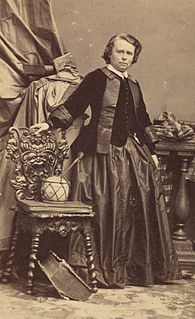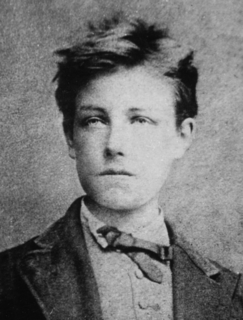A Quote by Seneca the Younger
Those things which make the infernal regions terrible, the darkness, the prison, the river of flaming fire, the judgment seat, are all a fable, with which the poets amuse themselves, and by them agitate us with vain terrors.
Related Quotes
There are some arts which to those that possess them are painful, but to those that use them are helpful, a common good to laymen, but to those that practise them grievous. Of such arts there is one which the Greeks call medicine. For the medical man sees terrible sights, touches unpleasant things, and the misfortunes of others bring a harvest of sorrows that are peculiarly his; but the sick by means of the art rid themselves of the worst of evils, disease, suffering, pain and death.
We have no reason to mistrust our world, for it is not against us. Has it terrors, they are our terrors; has it abysses, those abysses belong to us; are dangers at hand, we must try to love them.... Perhaps all the dragons of our lives are princesses who are only waiting to see us once beautiful and brave. Perhaps everything terrible is in its deepest being something helpless that wants help from us.
Leave those vain moralists, my friend, and return to the depth of your soul: that is where you will always rediscover the source of the sacred fire which so often inflamed us with love of the sublime virtues; that is where you will see the eternal image of true beauty, the contemplation of which inspires us with a holy enthusiasm.
He who is accustomed to give account of his life at confession here will not fear to give an answer at the terrible judgment-seat of Christ. It is for this purpose that the mild tribunal of penitence was here initiated, in order that we, being cleansed and amended through penitence here below, may give an answer without shame at the terrible judgment-seat of Christ.
There are certain things in which one is unable to believe for the simple reason that he never ceases to feel them. Things of this sort - things which are always inside of us and in fact are us and which consequently will not be pushed off or away where we can begin thinking about them - are no longer things; they, and the us which they are, equals A Verb; an IS.
...these poets here, you see, they are not of this world:let them live their strange life; let them be cold and hungry, let them run, love and sing: they are as rich as Jacques Coeur, all these silly children, for they have their souls full of rhymes, rhymes which laugh and cry, which make us laugh or cry: Let them live: God blesses all the merciful: and the world blesses the poets.
While my chosen form of story-writing is obviously a special and perhaps a narrow one, it is none the less a persistent and permanent type of expression, as old as literature itself. There will always be a certain small percentage of persons who feel a burning curiosity about unknown outer space, and a burning desire to escape from the prison-house of the known and the real into those enchanted lands of incredible adventure and infinite possibilities which dreams open up to us, and which things like deep woods, fantastic urban towers, and flaming sunsets momentarily suggest.
I charge [my sons] never to let the motives of private interest or ambition to influence them to betray, nor the terrors of poverty and disgrace, or the fear of danger or of death deter them from asserting the liberty of their country, and endeavoring to transmit to their posterity those sacred rights to which themselves were born
All the wants which disturb human life, which make us uneasy to ourselves, quarrelsome with others, and unthankful to God, which weary us in vain labors and foolish anxieties, which carry us from project to project, from place to place in a poor pursuit of we don't know what, are the wants which neither God, nor nature, nor reason hath subjected us to, but are solely infused into us by pride, envy, ambition, and covetousness.
For men and women are not only themselves; they are also the region in which they are born, the city apartment or farm in which they learnt to walk, the games they played as children, the old wives tales they overheard, the food they ate, the schools they attended, the sports they followed, the poets they read, and the God they believed in. It is all these things that have made them what they are, and these are the things that you can't come to know by hearsay.








































